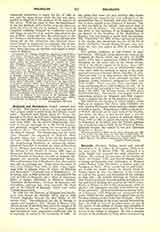

Belgrado, GIACOPO, Italian Jesuit and natural philosopher, b. at Udine, November 16, 1704; d. in the same city, March 26, 1789. He belonged to a noble family and received his early education at Padua. He entered the novitiate of the Society of Jesus, October 16, 1723, and showed marked talent, studying mathematics and philosophy at Bologna. under Father Luigi Marchenti, a former pupil of Varignon at Paris. After completing his philosophical studies he taught letters for several years at Venice, where he won the affection of his students as well as the esteem and friendship of the scholars of that city. He studied theology at Parma and then became professor of mathematics and physics at the university, holding this position for twelve years. While at Parma he did much experimental work in physics with apparatus specially constructed by two of his assistants. After pronouncing his solemn vows, on February 2, 1742, Belgrado was summoned to the court, where he was appointed confessor, first to the Duchess and later to the Duke Don Philippo. The title of mathematician of the court was also bestowed on him. In 1757 he erected an observatory on one of the towers of the college of Parma and furnished it with the necessary instruments, In 1773 he became rector of the college of Bologna. He was a member of most of the academies of Italy and a corresponding member of the Academie des Sciences of Paris. He was likewise one of the founders of the Arcadian colony of Parma. He wrote on a variety of subjects, among his works being: “I Fenomeni Elettrici” (1749); “Della riflessione de’ corpi dall’ acqua e della diminuzione dells mole de’ sassi ne’ torrenti e ne’ fiumi” (1755); “De analyseos vulgaris usu in re physica” (1761-62); “belle sensazioni del freddo e del Galore” (1764); “Theoria Cochle Archimedis” (1767); “Dell’ esistenza di Dio da’ teoremi geometrici” (1777), etc.
H. M. BROCK

